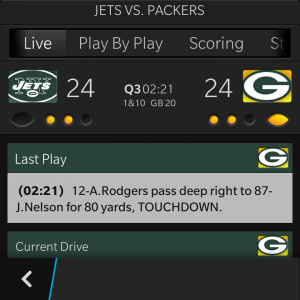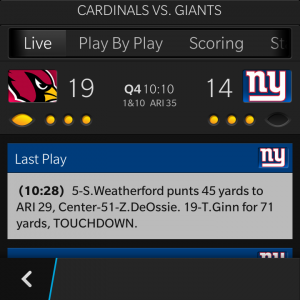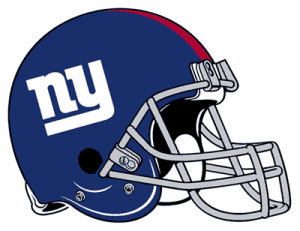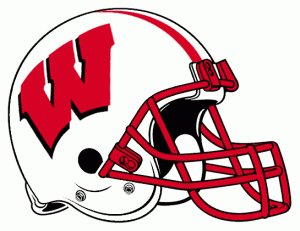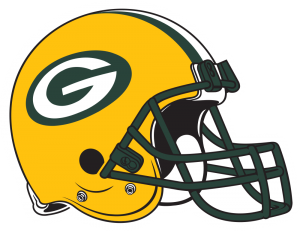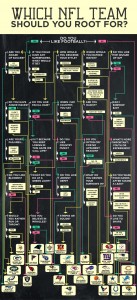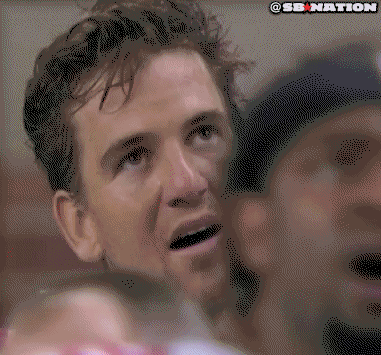Consider playing in the NFL as the epitome of sports – and being an astronaut as the epitome of a STEM career. In both cases, postulate that college is where you can reasonably draw a line for determining basic qualification for application. In the case of the NFL, to reasonably apply to the NFL you must at minimum play NCAA football. In the case of an astronaut, you must at minimum have a Bachelor’s degree in a STEM-related field. Fair enough?
The NFL statistics are summarized in this graphic (via @GatorsScott) –
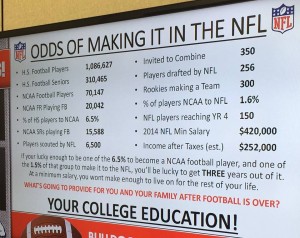
The relevant numbers are: 15588 NCAA seniors playing football, of which 256 are drafted to the NFL, or 256/15588 = 1.6%. (note, these numbers are from 2013, via a study commissioned by the NCAA.)
This year’s astronaut corps application had a total of 18,300 applications. The minimum education requirements to apply are “a bachelor’s degree from an accredited institution in engineering, biological science, physical science, computer science or mathematics. An advanced degree is desirable” (about a third of astronauts have an MS, and a third have PhDs). There will be 8-14 open slots, so lets assume the maximum for best possible probability: 14/18,300 = 0.07%.
Now, this doesn’t disprove the so-called STEM shortage – the evolution of the modern-day disposable academic suffices to do that on its own. It is however a cautionary tale about the rhetoric we use when we tell children to “reach for the stars”. Thats good for *children*, but as advice to college students, it’s terrible. A child should be encouraged to dream, and dream big. A college student is practically an adult and deserves to hear stark realities about the job market because that is precisely the moment in time where they can have to make decisions about the rest of their life – decisions that should be informed by those dreams, but not dictated by them.
There are a lot of astronauts and NFL players who decided from day one that was what they were going to do, and succeeded. And that is amazing. But there just isnt enough room for everyone who is equally capable and has the same amount of sheer determination and talent to do the same. We don’t need 18,300 astronauts, nor do we need 15,588 NFL players drafted every year.

